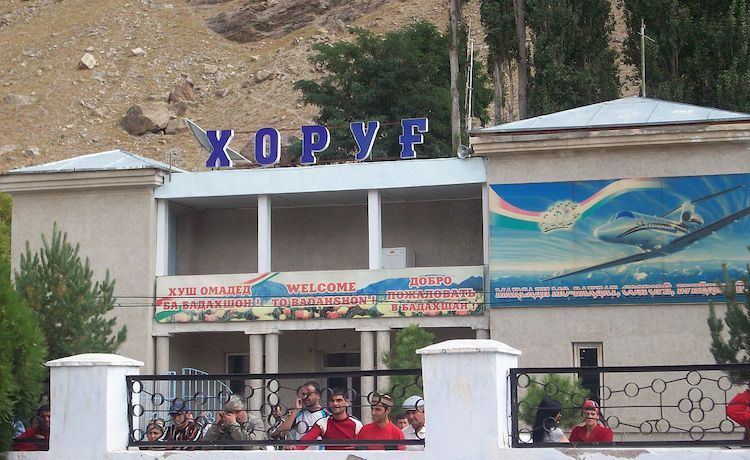By Alisher Kukanbekov
KHOROG (IDN) – “I’m surely grateful to have lived in the Soviet Union. Our lives moved rather slower back then, we didn’t have to worry about putting food on the table. Everyone was equal,” says Amid, recalling the days when Tajikistan was part of the Soviet Union.
It is not uncommon for older people in the Central Asian region that was under the Soviet Union to express such nostalgia for the communist era, as the capitalistic get rich fast skim fades away failing to deliver a better lifestyle.
“There were no poor people as everyone got the help (from government) and community if they needed it,” added Amid reflecting a main theme of communist ideology.
Tajikistan with a population of 8.7 million and a per capita income of $ 3,500 makes it one of the poorest countries in the region.
The Soviet Union consisting of 15 republics, lasted from 1922 until late 1991 based on the Marxist-Leninist ideology. The aim was to create a society where everyone is equal no matter of their status. Everyone had to work for the betterment of another person. The result of the people’s hard work was then shared equally between the population of the USSR (Union of Soviet Socialist Republics). Tajikistan became a full-fledged Soviet Republic in 1929.
One of the first steps that was taken by the Soviet Union in the early days of Tajikistan becoming a Soviet Socialist Republic (SSR) was to tackle the issue of literacy within the population. Compared to the other richer and better off republics at that time, Tajikistan had an extremely fast growth in literacy rates across the country. By 1950s Tajikistan claimed complete literacy, it ranked better than other countries such as non-Soviet neighbors Iran and Turkey, who both had a literacy rate of 20 percent.
“In school we learnt about everything. From languages, to math, geography, history. It was just like normal schools that we have today. Education played a very important role during the Soviet Union and everyone got a chance to study regardless of the economic status,” recalls Amid of his early childhood in the Soviet Union. “The Soviet Union brought schools and education that we had never seen before in Tajikistan; we learned subjects that the normal people didn’t have the chance to before”.
The Soviet Union also put in place an educational system that gave an incentive for students to study.
“Back then at school the students that did very well, were awarded with different medals and certificates. It was an incentive to many students to do better in their studies,” says Shirinbek, a Tajik product of the Soviet education system. “I personally studied very hard because we were always told that if we studied very well, we will be respected members of the society and at the same time will have a good life.”
The impact can still be seen in Tajikistan today as its population’s literacy rate is at 98 percent, according to UNESCO. Moreover, many school materials that are still used today, such as books are still from the Soviet era. Especially in subjects like math, or any science-based subjects such as physics and chemistry.
“Even though we are using less of Soviet books, we still refer to the books that were published back during the Soviet Union. I guess it shows how these books are still relevant to today’s world, because most of them are mathematics and science books for which much hasn’t changed.” says Sino, a schoolteacher, getting ready for his next academic year to start.
“Most of our books are still Soviet made. Especially the sciences, such as physics, chemistry and biology. They are very old but still very helpful when it comes to studying,” says Manserat a student at one of the schools in Tajikistan.
The Soviet Union also spent hugely on building and improving infrastructure, especially in republics like Tajikistan where infrastructure barely existed. They built universities, government offices, roads – that still stand in many parts of Tajikistan.
In the administrative town of Gorno-Badakhshan, Khorog, the government building and the Khorog state university that were built more than sixty years ago still play their role in the development of the region.
The Soviet Union heavily expanded irrigation in Tajikistan’s agricultural system, which in turn allowed many people to work in the agricultural industry. Cotton growing was one of Tajikistan’s main specialty, on which it still depends today.
Even though there were many restrictions that the Soviet Union imposed on its people and oppressed the republics, the economic development that it brought allowed the countries, especially Tajikistan to catapult into the twentieth century and even in the twenty-first century. The effects of that era can still be felt. Many of the older people who lived through that period see their lives then with some nostalgia.
“The good thing was that people worked together, people helped each other; today everyone has to live for themselves and you have to work hard to earn everything,” recalls Amid looking at the Soviet era with nostalgia. However, many people still wanted to have more products to choose from in the market.
“The Soviet Union was surely good because you got what you needed. However, there we didn’t have a lot of choices. Today I can go to the market and choose whatever I want, but the only difference is that I have to work hard to earn my money (to pay for it),” says Shirinbek.
Note: Only first names of interviewees were used on their request.
The writer is a media studies student at the University of Central Asia. He is doing a summer internship with IDN-INPS as the correspondent for Tajikistan. [IDN-InDepthNews – 06 September 2019]
Photo Khorog airport. Source: Wikimedia Commons | CC BY-SA 3.0
IDN is flagship agency of the International Press Syndicate.
www.facebook.com/IDN.GoingDeeper – https://twitter.com/InDepthNews

